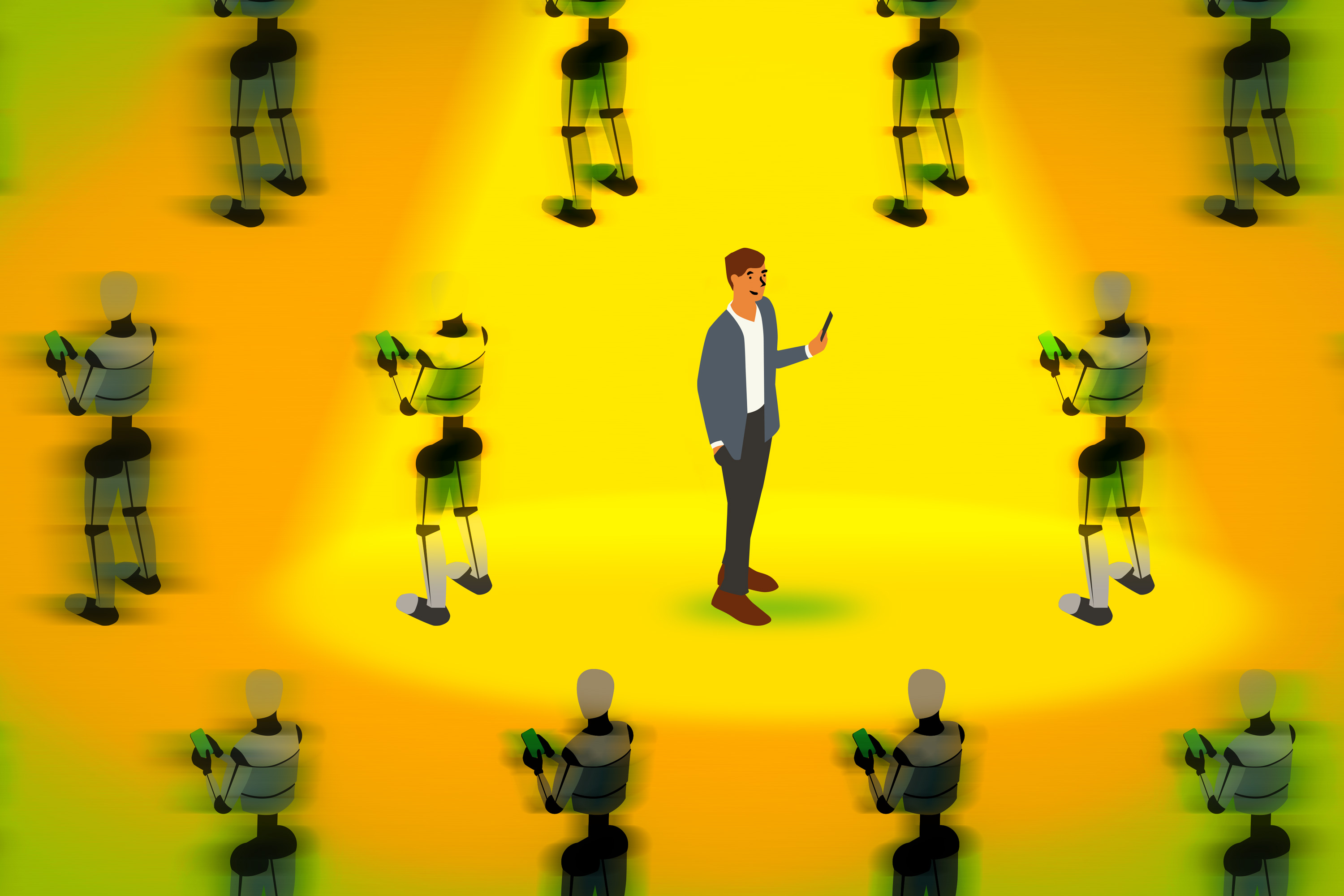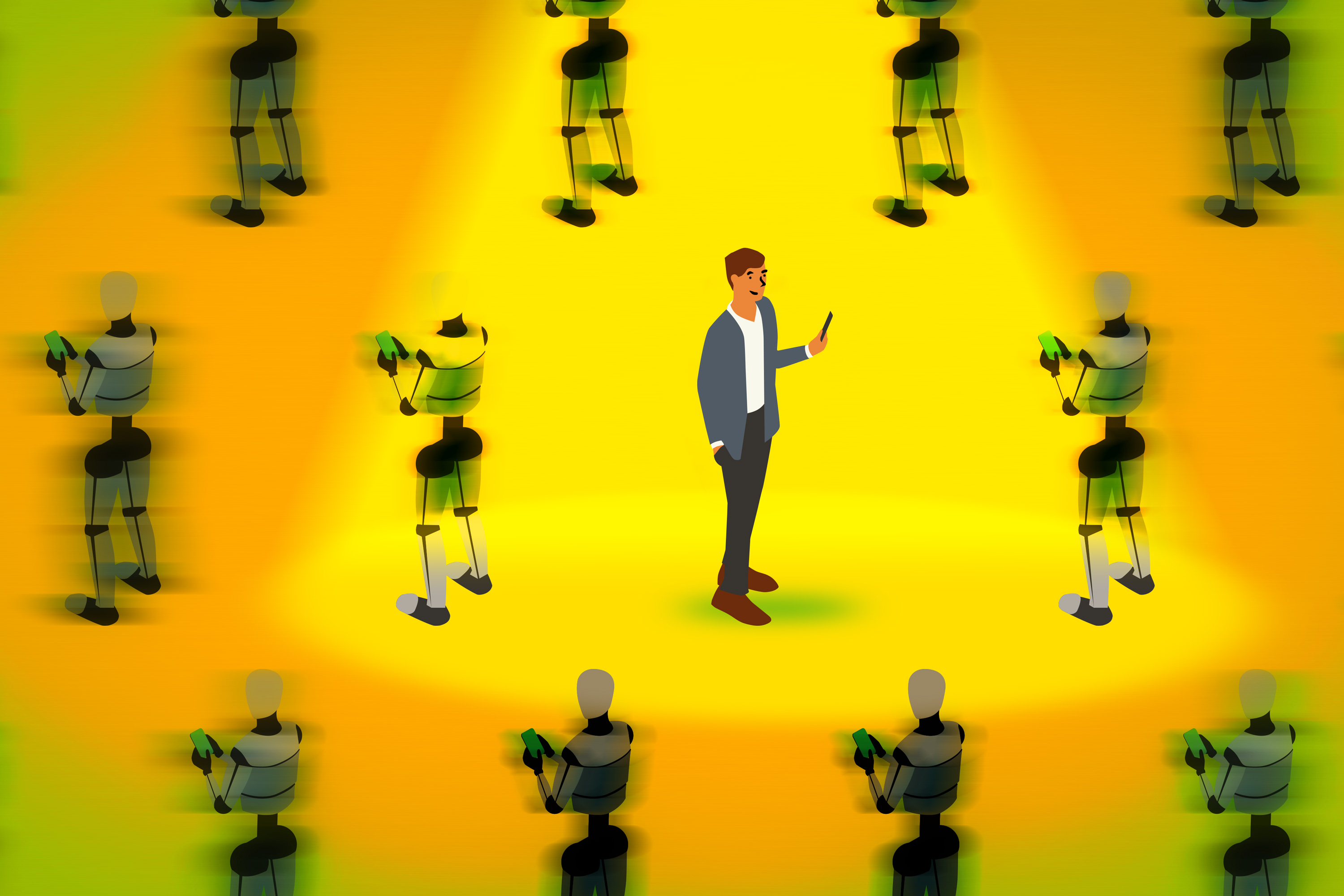
As synthetic intelligence brokers change into extra superior, it might change into more and more tough to tell apart between AI-powered customers and actual people on the web. In a new white paper, researchers from MIT, OpenAI, Microsoft, and different tech firms and tutorial establishments suggest using personhood credentials, a verification approach that permits somebody to show they’re an actual human on-line, whereas preserving their privateness.
MIT Information spoke with two co-authors of the paper, Nouran Soliman, {an electrical} engineering and laptop science graduate pupil, and Tobin South, a graduate pupil within the Media Lab, in regards to the want for such credentials, the dangers related to them, and the way they could possibly be carried out in a protected and equitable approach.
Q: Why do we want personhood credentials?
Tobin South: AI capabilities are quickly enhancing. Whereas quite a lot of the general public discourse has been about how chatbots hold getting higher, refined AI permits way more capabilities than only a higher ChatGPT, like the flexibility of AI to work together on-line autonomously. AI might have the flexibility to create accounts, publish content material, generate pretend content material, faux to be human on-line, or algorithmically amplify content material at a large scale. This unlocks quite a lot of dangers. You may consider this as a “digital imposter” downside, the place it’s getting more durable to tell apart between refined AI and people. Personhood credentials are one potential resolution to that downside.
Nouran Soliman: Such superior AI capabilities might assist dangerous actors run large-scale assaults or unfold misinformation. The web could possibly be stuffed with AIs which can be resharing content material from actual people to run disinformation campaigns. It will change into more durable to navigate the web, and social media particularly. You could possibly think about utilizing personhood credentials to filter out sure content material and average content material in your social media feed or decide the belief degree of knowledge you obtain on-line.
Q: What’s a personhood credential, and how are you going to guarantee such a credential is safe?
South: Personhood credentials can help you show you might be human with out revealing anything about your identification. These credentials allow you to take data from an entity like the federal government, who can assure you might be human, after which by way of privateness know-how, can help you show that reality with out sharing any delicate details about your identification. To get a personhood credential, you will have to point out up in particular person or have a relationship with the federal government, like a tax ID quantity. There may be an offline part. You’re going to should do one thing that solely people can do. AIs can’t flip up on the DMV, as an illustration. And even probably the most refined AIs can’t pretend or break cryptography. So, we mix two concepts — the safety that we now have by way of cryptography and the truth that people nonetheless have some capabilities that AIs don’t have — to make actually strong ensures that you’re human.
Soliman: However personhood credentials could be optionally available. Service suppliers can let individuals select whether or not they need to use one or not. Proper now, if individuals solely need to work together with actual, verified individuals on-line, there isn’t a affordable approach to do it. And past simply creating content material and speaking to individuals, in some unspecified time in the future AI brokers are additionally going to take actions on behalf of individuals. If I’m going to purchase one thing on-line, or negotiate a deal, then possibly in that case I need to make certain I’m interacting with entities which have personhood credentials to make sure they’re reliable.
South: Personhood credentials construct on prime of an infrastructure and a set of safety applied sciences we’ve had for many years, reminiscent of using identifiers like an e-mail account to signal into on-line companies, and so they can complement these current strategies.
Q: What are a number of the dangers related to personhood credentials, and the way might you scale back these dangers?
Soliman: One threat comes from how personhood credentials could possibly be carried out. There’s a concern about focus of energy. Let’s say one particular entity is the one issuer, or the system is designed in such a approach that every one the ability is given to at least one entity. This might increase quite a lot of issues for part of the inhabitants — possibly they don’t belief that entity and don’t really feel it’s protected to interact with them. We have to implement personhood credentials in such a approach that individuals belief the issuers and make sure that individuals’s identities stay utterly remoted from their personhood credentials to protect privateness.
South: If the one approach to get a personhood credential is to bodily go someplace to show you might be human, then that could possibly be scary if you’re in a sociopolitical surroundings the place it’s tough or harmful to go to that bodily location. That would stop some individuals from being able to share their messages on-line in an unfettered approach, presumably stifling free expression. That’s why you will need to have quite a lot of issuers of personhood credentials, and an open protocol to ensure that freedom of expression is maintained.
Soliman: Our paper is making an attempt to encourage governments, policymakers, leaders, and researchers to take a position extra sources in personhood credentials. We’re suggesting that researchers research totally different implementation instructions and discover the broader impacts personhood credentials might have on the neighborhood. We want to verify we create the fitting insurance policies and guidelines about how personhood credentials must be carried out.
South: AI is transferring very quick, actually a lot sooner than the velocity at which governments adapt. It’s time for governments and large firms to begin fascinated about how they will adapt their digital techniques to be able to show that somebody is human, however in a approach that’s privacy-preserving and protected, so we could be prepared once we attain a future the place AI has these superior capabilities.


